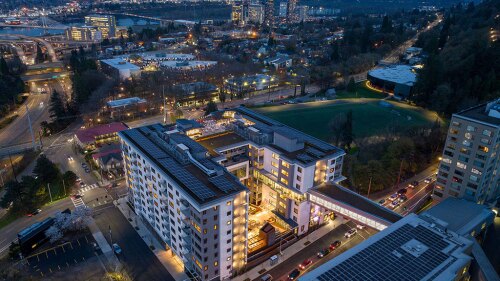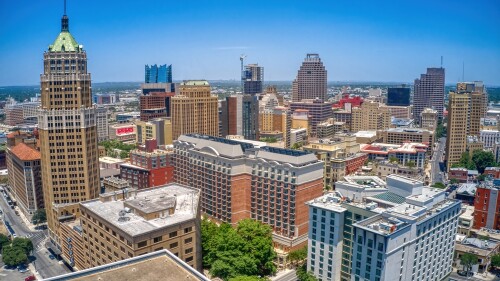Health and wellness are driving part of the offering at Whole Foods, Westin Hotels, and the Baja California resort industry in a way that is likely to increase over time, panelists said at the ULI Spring Meeting last week in Vancouver, British Columbia.
After the original Whole Foods store in Austin flooded, the owners could not get financing from local banks because they viewed the company as just “hippies selling food to other hippies,” Joe Rogoff, president of the company’s Pacific Northwest region, said during the session titled “Finding the Market for Health and Wellness.” He now estimates that in the United States alone, the annual organic food business has grown to $35 billion, and the supermarket chain is entering markets like Midtown Detroit, New Orleans, and Tulsa.
“You might have thought [Whole Foods] had a certain model,” said Rogoff. “There’s no model. We suit our neighborhoods. ... We’re in malls now; stand-alones are becoming more rare.” Long associated with well-off suburbs, the brand is expanding into resort areas like Hyannis, Massachusetts, and parts of Colorado, but also into international markets, with several stores open in Canada; its first store in London opened just this month, he said. The company’s first stores in Alabama and Mississippi are also set to open.
Whole Foods offers wellness benefits for its employees, a trait it shares with Starwood’s Westin brand. Westin Hotels & Resorts always tries to include benefits for its associates that mirror those provided to guests, said Brian Povinelli, global brand leader.
One example is a partnership with the makers of the meditation app Headspace. Headspace has created “modules” for frazzled business travelers who are preparing for a presentation or a long trip, as well as for the hotel’s employees.
In some ways, Westin pioneered the wellness trend in hotels with its Heavenly bedding, making a good night’s sleep central to its brand, Povinelli said. Westin is also going beyond the standard hotel gym as an amenity, offering to loan customers a t-shirt, shorts, and shoes for $5 per stay so they do not miss workouts while traveling. It also provides maps of local jogging routes; an audience member volunteered that she had run ten kilometers (6 mi) through Vancouver’s Stanley Park using the map in her Westin hotel room.
Westin is also working to provide healthier meals at its restaurants and through room service in partnership with SuperFoodsRx. It has incorporated biophilic design into its lobbies with vertical gardens, which have a mental health benefit for harried customers and also improve air quality.
Westin has also embraced the idea of the weekend getaway, serving breakfast all day on Sunday and letting customers check out as late as 3 p.m., Povinelli said. He credits these wellness- and relaxation-focused enhancements with Westin’s gains in rates, revenue per available room (RevPAR), and occupancy, increasing the firm’s market share by 3 percentage points since 2011.
The same trends are holding true in the market for second homes, said Sandra Kulli, a real estate marketing strategist. Tres Santos, a development near Cabo San Lucas, Mexico, has as its first two rules “no golf” and “no gates,” turning its back on the gated, golf-focused communities of the 1980s.
Mountain biking, surfing, and hiking are all available in the area, as are locally sourced fish and agriculture. Colorado State University is building a branch campus in the area, bringing with it veterinary medicine and agricultural expertise. There are also philanthropic efforts tied to the community, including Knockout Basura, in which boxers from all over Latin America work with local children to clean up problems with litter.






